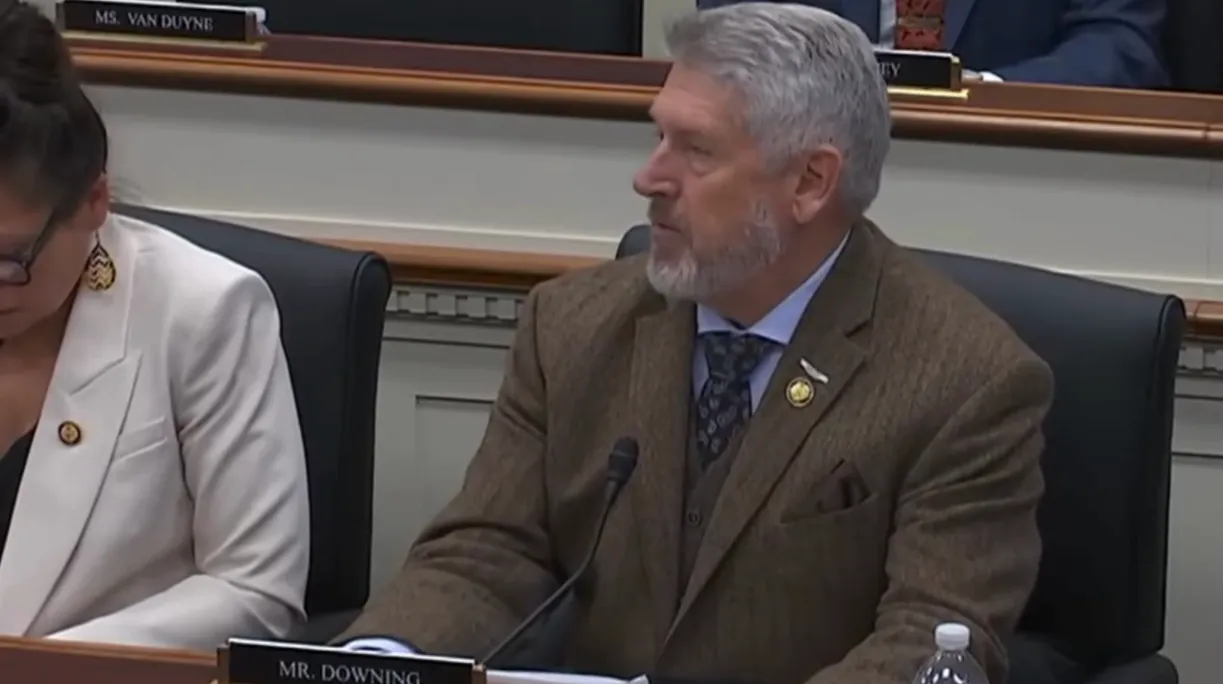WASHINGTON, D.C. — Rep. Troy Downing’s bill to help Montana small businesses critically evaluate artificial intelligence tools cleared a House committee Monday, offering skeptical business owners federal guidance on when AI is worth the investment—and when it isn’t.
The AI-WISE Act, which passed the House Committee on Small Business with bipartisan support, would require the Small Business Administration to develop educational resources teaching business owners how to identify AI limitations, protect their data privacy, and determine whether AI tools adequately fill a need before spending money on them.
“Small businesses in central and eastern Montana often lack the resources and information needed to facilitate technology adoption,” Downing said. “My AI-WISE Act will help Main Street Montana stay competitive and thrive in the AI era.”
The legislation requires no new federal spending, instead directing the SBA to use existing resources to create the educational modules within 180 days of enactment.
How Montana Businesses Would Access the Resources
Under the bill, small businesses would receive AI guidance through two channels: a free online learning platform operated by the SBA and Montana’s existing network of Small Business Development Centers and Women’s Business Centers.
Montana has SBDCs in Billings, Bozeman, Butte, Great Falls, Havre, Helena, Kalispell, Miles City, Missoula, and Wolf Point, which would be authorized to develop specialized training tailored to their local communities’ needs.
Montana’s SBDCs, located in communities across the state, would be authorized to develop specialized training tailored to their local communities’ needs. This localized approach recognizes that a ranch operation in eastern Montana and a tech startup in Missoula might need different AI literacy resources.
The bill specifically empowers these resource partners to incorporate information on AI tools “common to the community served,” allowing Montana’s small business advisors to address region-specific applications rather than generic federal curriculum.
Emphasis on Critical Evaluation, Not Promotion
The legislation’s language emphasizes helping businesses critically assess AI rather than promoting its adoption. The required educational modules must cover 10 specific topics, including:
- How AI models work and their limitations
- How to identify when software outputs are AI-generated
- How to protect privacy of user inputs to AI tools
- How to maintain human oversight in important business decisions
- How to identify tasks AI can reliably perform
- How to determine whether an AI tool is worth adopting
The bill also requires the educational materials to remain “model-neutral,” prohibiting the SBA from favoring specific AI companies or products over others.
Montana Already Addressing AI Literacy in Education
The federal bill would extend Montana’s AI literacy efforts from the classroom to Main Street businesses.
In October, Montana became the first state to release comprehensive guidelines for how schools can safely use artificial intelligence, with Superintendent Susie Hedalen establishing principles that prioritize student privacy, human oversight, and critical thinking about AI limitations.
The parallel approaches suggest Montana is taking a cautious, education-first stance on AI adoption across both future workers and current business owners—emphasizing understanding and evaluation rather than uncritical embrace of new technology.
Bipartisan Support and Tech Industry Backing
The bill, co-sponsored by Rep. Hillary Scholten, D-Michigan, attracted support from both OpenAI and Intuit, which praised its focus on AI literacy and neutral, actionable guidance.
“We are encouraged that the bill directs SBA to consult with NIST and an expert advisory working group, to engage resource partners such as SBDCs and Women’s Business Centers, and to ensure that materials are actionable, accessible, and model neutral,” OpenAI stated in its letter of support.
According to the U.S. Census Bureau, nearly 1 in 4 businesses do not know whether they will or will not use AI in production during the next six months, highlighting the information gap the legislation aims to address.
The bill now moves to the full House of Representatives for consideration. Additional co-sponsors include Representatives Brian Fitzpatrick, R-Pennsylvania, Josh Gottheimer, D-New Jersey, Gil Cisneros, D-California, and Maggie Goodlander, D-New Hampshire.
